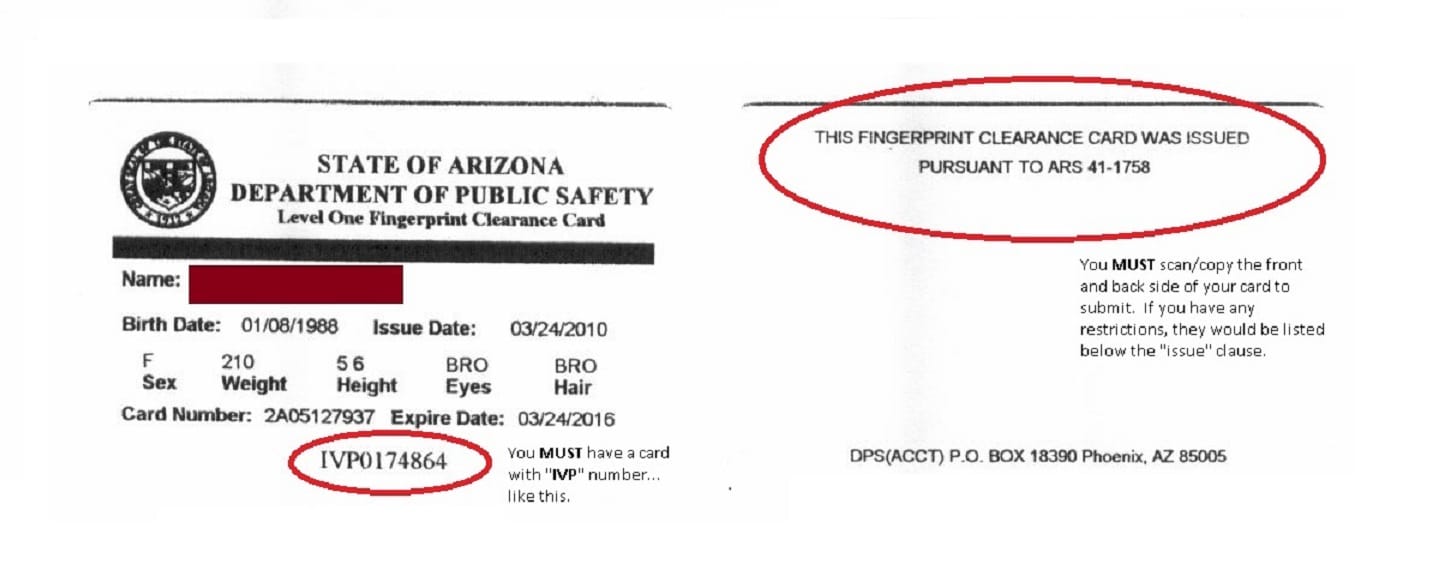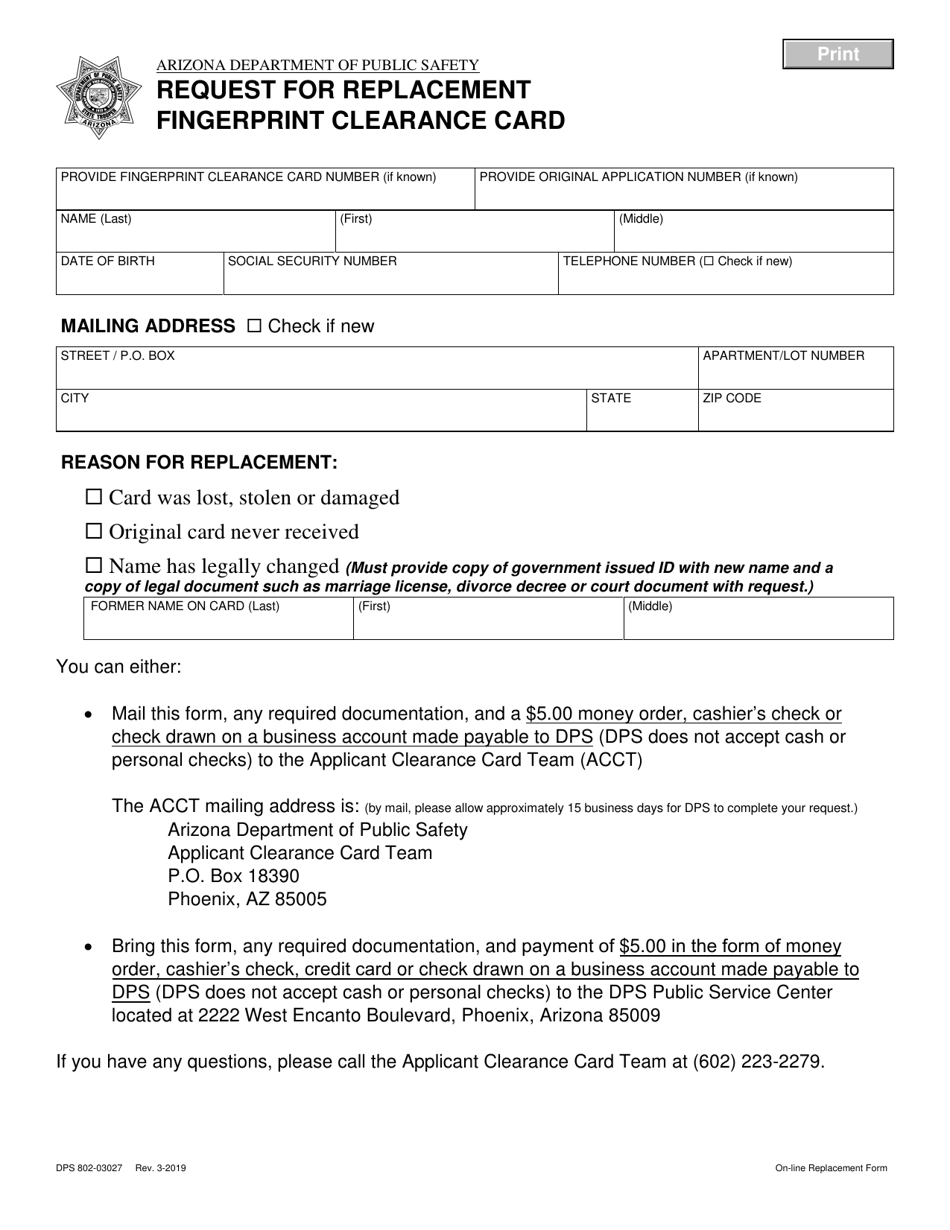

Therefore, it is likely that now at least a half a million Arizona vocational workers, volunteers and students are required to hold them. Every year since 2011, at least 100,000 individuals have applied for fingerprint clearance cards.
#Arizona fingerprint card professional#
And those hundred thousand were in addition to the 152,062 individuals who submitted “applicant fingerprint cards” to DPS as part of the normal application process for professional licensure. In 2014 alone, 104,161 individuals applied for Arizona fingerprint clearance cards. While the fingerprint clearance card system was initially implemented to screen a finite group of working professionals who, in the scope of their duties, would interact with “children, the elderly, or vulnerable adults,” Arizona now requires fingerprint clearance cards for hundreds of thousands of support staff, unpaid volunteers, and students, and for vocational categories from “real estate” to “game and fish.” Who Needs a Card?Īs of 2014, the Arizona Legislature mandates a “fingerprint clearance card” for at least 42 vocational groups, more than double the original number. This system has grown tremendously and, in a number of ways outlined in the sections below, serves as a paradigmatic example of the paralyzing power of the collateral consequences of common crimes. The 1998 legislation gave DPS the unilateral authority to summarily suspend fingerprint clearance cards upon arrest for over 100 enumerated “precluding offenses,” including many misdemeanors. Fingerprint clearance cards are required in addition to professional licensing from a state licensing board and, unlike a pre-employment criminal background check, are monitored on-going with new criminal records being automatically flagged, as they arise.

With no analogue in any other state, this regulatory system placed licensing, and employment, almost exclusively into the hands of the police.

Through House Bill 2585 (1998), the Arizona Legislature erected a regulatory apparatus known as “fingerprint clearance cards” (and a wholly new administrative agency, known as the Arizona Board of Fingerprinting). To better assess these consequences, we compiled information on the fingerprint clearance card laws and the most common low level crimes that we were getting lots of calls on: simple marijuana possession simple assault misdemeanor DUI criminal damage misdemeanor domestic offenses, etc.-to see how you could lose your card, and whether you have a chance of getting it back. Helping our clients to not only navigate these treacherous regulatory waters, but in fact helping them realize that they are immersed in them in the first place, is in my view paramount to effective representation. Because suspension is triggered upon arrest for a myriad of common crimes, and review as a practical matter is slow, an expedited and carefully planned resolution is critical. Maybe one she’s had for ten years.įor these reasons, attorneys should take special care when representing a client in a criminal matter who holds any form of Arizona fingerprint clearance card. We did extensive research in this area of law and found that these fingerprint clearance cards were pretty easy to lose– sometimes merely getting a ticket for certain things in Arizona such as “criminal damage” would by itself get the card automatically “suspended.” Presto.
#Arizona fingerprint card driver#
We’ve found that a lot of our clients have something called an “Arizona Fingerprint Clearance Card.”Īs you might expect, The Arizona Department of Public Safety (the State Police) requires that every school teacher not only have a teaching license, but a special “fingerprint clearance card,” but there are thousands of other people have to have them: the school janitor has one the lunch ladies the bus driver the kindergarten volunteers the little league coach all the minimum wage childcare workers.


 0 kommentar(er)
0 kommentar(er)
